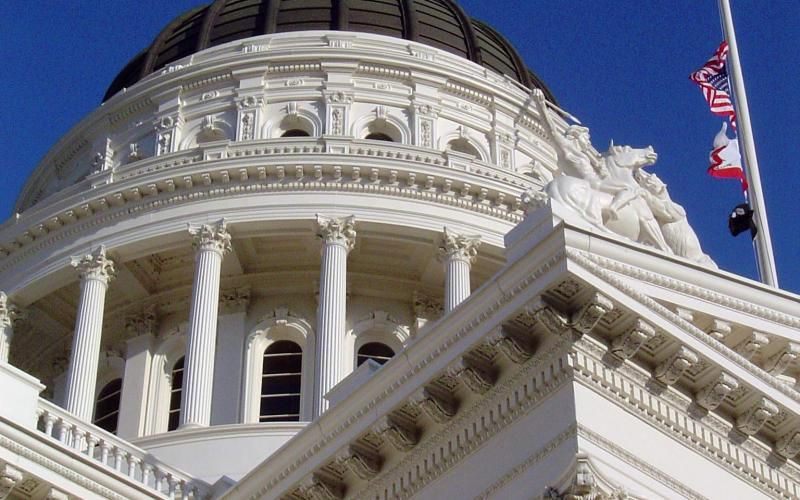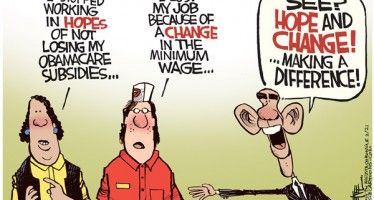CA health tax plan keeps Medi-Cal part of national budget
 Surmounting a challenge that has festered since summer of last year, Sacramento legislators pulled together behind a tax plan that will keep Medi-Cal part of the national budget.
Surmounting a challenge that has festered since summer of last year, Sacramento legislators pulled together behind a tax plan that will keep Medi-Cal part of the national budget.
“California lawmakers approved a health plan tax package Monday designed to continue pulling in more than a billion dollars in matching federal money, while committing several hundred million dollars to services for the developmentally disabled, debt relief and other programs,” the Sacramento Bee reported. “The final deal includes tax offsets designed to minimize any hit to health plans that could be passed on to consumers. In addition, to achieve enough Republican support, the package includes several components Republican lawmakers wanted, such as providing more money to help people with autism and other developmental disabilities and forgiving a budget debt owed by skilled-nursing facilities.”
By shifting the balance of taxes, lawmakers ensured that California’s own budget was not hit with a billion-dollar deficit. No money was allocated to make up that difference if a deal was not reached and federal funds dried up. For that reason, Gov. Jerry Brown all but hounded elected officials to hammer out a bargain. Brown “called a special session on health care last year, tasking lawmakers with finding a long-term solution for funding Medi-Cal so the program doesn’t rely so heavily on the general fund, which pays for most state services,” recalled the San Francisco Chronicle. “One of the key priorities was to expand the state’s tax on managed-care organizations — a tax that the Obama administration said did not comply with federal law.”
Winning support
The political brambles could not be cleared until Republicans felt a deal was appropriately structured given the state’s current budget surplus. Assembly Minority Leader Chad Mayes, R-Yucca Valley, who worked with Brown to negotiate the package, said that “as a whole [it] would be a tax cut – and it also includes several GOP priorities, like paying down debt,” as Capital Public Radio paraphrased his position. “Republicans who support the bill will have some political cover,” the station added, noting the Howard Jarvis Taxpayers Association and the state Chamber of Commerce “both say the governor’s proposal would not result in a net tax increase.”
Providers of private health insurance plans, which initially balked as well, acquiesced to the deal because lawmakers pared back their tax burdens elsewhere in order to make up for what they will now have to pay. As the Chronicle noted, “plans that don’t accept Medi-Cal patients would pay the additional tax, but the state would reduce their corporation and insurance tax liability by $371 million so that the plans will not raise patient premiums. The overall effect is a net increase to the plans, state Senate senior policy staff said. With the change, health plans now support the proposal.”
Cautious optimism
Amid an acrimonious presidential campaign season defined by sharp accusations of political breakdown in Washington, both state parties in California have used the tax deal to claim a measure of political victory. While Mayes cast Republicans as strong negotiators who kept taxes in check, state Senate President Pro Tem Kevin de León, D-Los Angeles, contrasted Sacramento’s performance with the “severe dysfunction in Washington,” according to the San Jose Mercury News. “Here in California, we’re proving that Republicans and Democrats — no matter how difficult the issue may be — can work together and get things done.”
Still, even with Gov. Brown’s signature, one more hurdle remains before legislators can pop the champagne. “Once the governor signs the package,” the Bee cautioned, “state officials must sell the health plan tax to the Obama administration, which will have the final say on whether the state’s approach is eligible for federal matching money.”
Related Articles
Trump memo orders Central Valley water changes
The Trump administration has launched a bold effort to up-end water policies in the Central Valley and the Sacramento-San Joaquin
The impacts of raising San Francisco’s minimum wage to $15
On Nov. 4 San Francisco voters are being asked to approve Proposition J, a measure which increases the minimum wage
Doctors rip idea of nurses playing doctor
Medical doctors have qualifications no other medical employee has: four years of college, four years of medical school, three to




